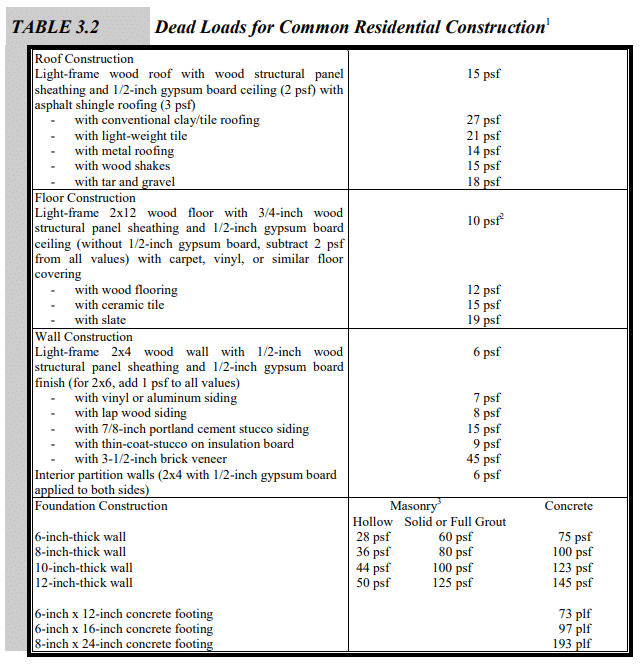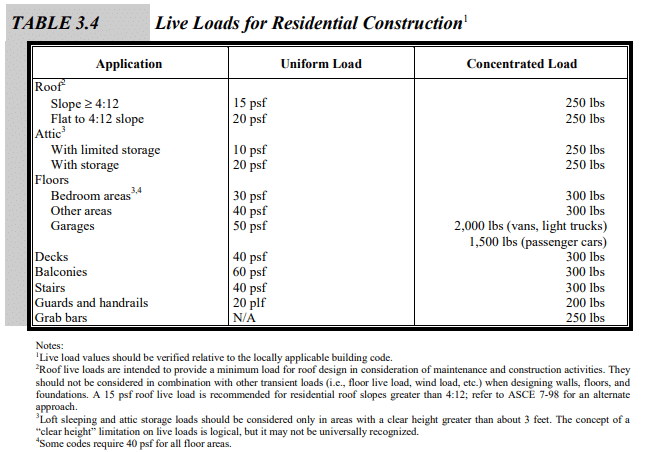We've independently reviewed this article to make sure it's as accurate as we can make it.
To find out more about our article creation and review process, check out our editorial guidelines.
Ever wondered how much your house weighs?
Well, you’re in luck! The following article contains a free civil engineering-based calculator that will give you a fairly accurate estimate of your house’s weight.
That said, I know this is the internet, and people want quick answers, so let’s start with some averages.
Depending on the square footage, the following table shows the average house weight:
| House Area (sq. ft) | House Weight (lbs) |
| 1,000 | 137,000 |
| 1,200 | 164,000 |
| 1,500 | 205,000 |
| 2,000 | 273,000 |
| 2,500 | 340,000 |
The table above is useful, but again, it’s only an average. Like people, every house is unique, so please use the calculator below for a more accurate approximation of your home’s weight.
Ready? Let’s go!
House Weight Calculator
The following calculator was put together according to the American Society of Civil Engineers (ASCE) Design Guide—specifically, Chapter 3: Design Loads for Residential Buildings.
If you’re wondering, I’m the author and am a qualified Civil Engineer. Our free tool should give you a reasonable ballpark figure of how much your home weighs. All you need to do is follow the inputs below.
Heavy, huh?
House Weight Estimates: Calculation Guideline
Looking to understand how the calculator works?
You might be thinking I pulled the above numbers out of thin air, or maybe you’re just curious about how the calculator works. In either case, I often find that diving into the details always clarifies things.
All the assumed weights themselves are hidden to save the calculator from being overly long, so I’ll walk through them below.
Dead Loads
If you’re determined to discover how heavy your house is, one of the key things to consider is dead loads. Otherwise known as static loads, dead loads are the loads from the building itself. Dead loads aren’t expected to change throughout the structure’s lifetime – they’re the same on day 1 as on year 50.
The drop-down list inputs in the calculator correlate to the below values:

If you’re particularly eagle-eyed, you may notice that foundation loads aren’t included in the calculator.
Due to the complex options and huge amount of weight a foundation adds, foundation loads were omitted from the calculations. It would be too complicated to include foundation loads as an input, not to mention it would take away from the “quick-estimate” style calculator.
Plus, I consider a house’s weight to be everything above the ground. If you were to pick up the house and move it (like with a house mover), the foundation wouldn’t make the journey with you.
How Much Do Floors Weigh?
Another key element to consider when determining how much a house weighs is floor weight.
According to the American Society of Civil Engineers, floors weigh between 10 and 19 lbs per square foot, depending on the material. In my experience, Light frame wood floors are the lightest, with slate flooring being the heaviest.
Different floor types serve different purposes. Thicker flooring, such as slate, can be beneficial for dampening noisy neighbors. In contrast, lighter alternatives, such as laminate, are great for other purposes but also more vulnerable to water and humidity.
Note that the above weight doesn’t account for the goods and furniture on top of the floor.
Live Loads
Any type of weight that changes over time is considered a live load.
Live loads could be the snow on your roof which lasts a couple of days, or your expensive dining table, which lasts 10 years.

Regarding flooring, I found that keeping the calculator simple meant that all floor loads were assumed to be 40psf, per note 4. The garage is added separately – removing the equivalent floor load area from the first story.
Decks and balconies are calculated from your area inputs, and the roof/attic loads are similarly applied depending on the input. Stairs are assumed to be 2ft wide by 12ft long, with 1 staircase for a 2-story building, 2 for a 3-story building, etc.
Please note that the live loads used in the calculator are likely way heavier than in reality.
Since we’re working from a civil engineering design guide, overestimation was always going to be the case. As engineers, we err toward the worst-case situation and prefer to calculate over rather than under.
If you look at the room around you, you likely have less than 40 lbs of weight per square foot from goods alone.
The only accurate alternative would be to measure all the items in your home truly. Taking a percentage off these heavy estimates could work, but pulling numbers out of thin air isn’t exactly encouraged when it comes to load calculations and determining how heavy a house is!
Walls
The final estimation to determine how much a house weighs is a custom one related to the exterior and interior walls.
Asking you to tally up the total length of your walls would be too much for a simple online calculator. Instead, I assume that the length of your exterior wall is roughly equal to the sides of your home area as a square. For example, if your home is a 1,000 sq. ft area, it would roughly equal a 30ft x 30ft square- meaning you would have around 400ft of exterior walls (per floor).
Interior walls are the same, assuming 2 sets of perpendicular walls run through the home on each floor. In other words, two interior walls running across the home and two walls running up and down – a total of 4 spanning across the home per floor.
I’m overestimating a little here, but again, it’s better to calculate over than under.
House Weight by Amount of Storeys
One common question is how much a story adds to a house’s weight.
Well, thanks to the calculator, we can find out!
Below are the numbers for a generic 2,000-square-foot home with varying floors. Each story adds around 100,000 lbs of increased weight due to the added floor, wall, and furniture weight on each story.
| Storeys | Total Weight (lbs) |
| 1 | 161,080 |
| 2 | 262,640 |
| 3 | 364,200 |
| 4 | 475,760 |
Conclusion
Sometimes you need to know exactly how much your home weighs. Whether it is for a construction project or simply out of innocent curiosity, getting a straight answer is key.
Please bear in mind that while the above numbers are all approximations, everything in this article is according to the ASCE design guide, so the figures do have some merit!
I hope our quick guide to calculating the weight of your house has satisfied your curiosity or helped give you a ballpark figure for hiring some house movers.
If this content has helped you, please consider supporting our blog by checking out the related articles below and subscribing to our newsletter. On the site, you’ll find useful resources, such as appliance guides for solving everyday issues, including a dishwasher making a buzzing sound.
Thanks for reading, have a great day!
-Craig.







